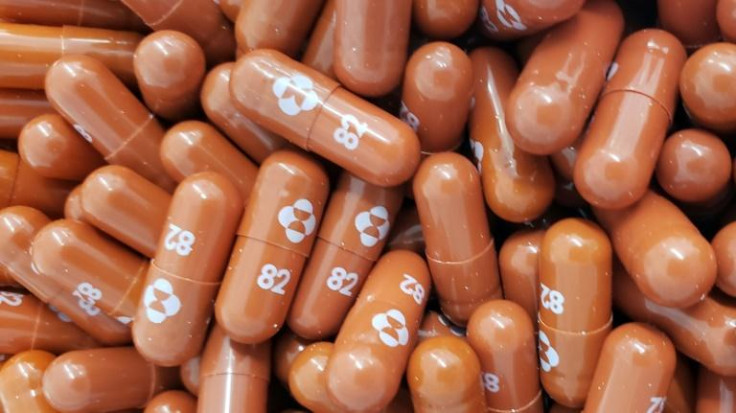US regulator authorizes Merck's Covid pill
The drug has previously been authorized in Britain and Denmark.
The US Food and Drug Administration (FDA) on Thursday authorized Merck's Covid pill for high-risk adults, a day after green lighting a similar but more effective drug by Pfizer amid a winter surge of cases driven by Omicron.
While vaccines and boosters remain the foremost tools in the fight against the pandemic, experts have welcomed the addition of the new oral treatments, which inhibit the virus' ability to replicate and should withstand variants.
FDA scientist Patrizia Cavazzoni told reporters the two authorizations have expanded "the arsenal of treatment options available to the public" and would help alleviate the burden on the nation's health care system.
The pill developed by Merck, called molnupiravir, is taken within five days of symptom onset and was shown in a trial of 1,400 participants to reduce Covid hospitalizations and deaths by 30 percent among at-risk people.
Pfizer's pill reduced the same outcomes by almost 90 percent, is authorized for people aged 12 and up, and has fewer overall safety concerns.
The US has paid $2.2 billion for 3.1 million courses of Merck's treatment, and $5.3 billion for 10 million courses of Pfizer's.
A Merck spokesperson told AFP: "Merck is ready to ship hundreds of thousands of courses within days, one million courses over the next few weeks, and three million by end of January."
Pills that can be picked up at pharmacies following a prescription should be a major boost to health care systems.
Until now, the main treatments have been synthetic antibodies or Gilead's antiviral remdesivir, which are administered by infusion.
Because the pills do not target the ever-mutating spike protein that dots the virus' surface, they should be variant proof. The companies have said early lab testing against Omicron have borne this out.

Still, the major difference in the two treatments' efficacy has raised questions about why patients or doctors would seek Merck's capsule, which is known as MSD outside the US and Canada.
In its authorization letter, the FDA stressed it should be taken only when other options are either not available or not appropriate.
For example, Pfizer's treatment, Paxlovid, can cause adverse reactions if mixed with certain other medications, and isn't recommended for people with severe kidney or liver impairment.
Overall, while both treatments were found to be generally well tolerated in clinical trials, more potential concerns have been raised about Merck's pill.
The FDA has not authorized Merck's pill for people under 18 because it may affect bone and cartilage growth.
It is not recommended for use in pregnant women because of the potential for fetal harm which was identified in animal testing, but doctors can still decide if the benefits outweigh the risks in individual cases.
Independent experts convened by the FDA narrowly voted in favor of authorizing molnupiravir in early December. Several who voted "no" highlighted these potential risks.
Initial data about molnupiravir's efficacy was more encouraging, suggesting a 50 percent reduction in severe Covid, but this was later downgraded to 30 percent after the final analysis included more cases.
Eight capsules of molnupiravir are taken orally for five days, for a total of 40 capsules.
The molecule works by incorporating itself into the genome of the virus, causing mutations that prevent viral replication.
The drug has previously been authorized in Britain and Denmark.
The FDA did not convene a panel of experts to discuss Pfizer's pill, instead opting to authorize it without seeking their advice.
FDA scientist John Farley explained that in the case of Pfizer, the benefit-to-risk balance was more clear and the agency did not feel the need for external input.
Copyright AFP. All rights reserved.
This article is copyrighted by International Business Times, the business news leader





















